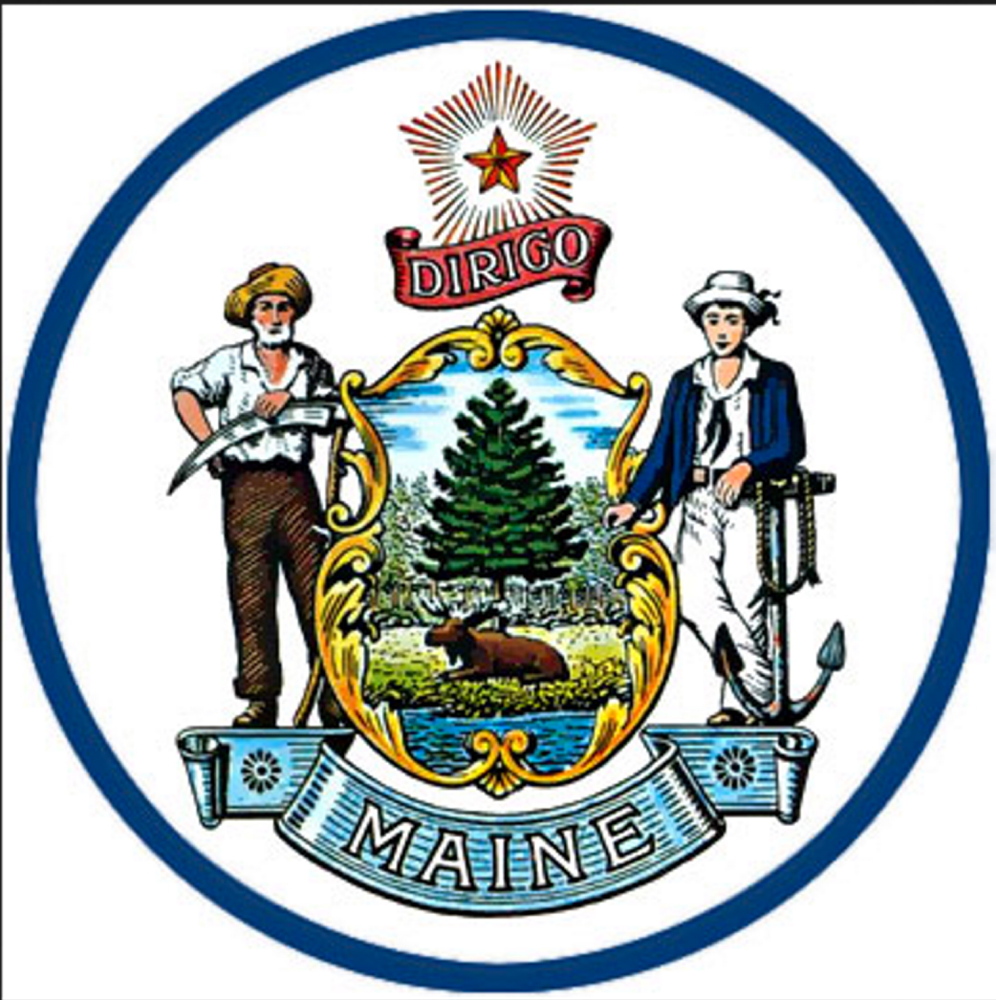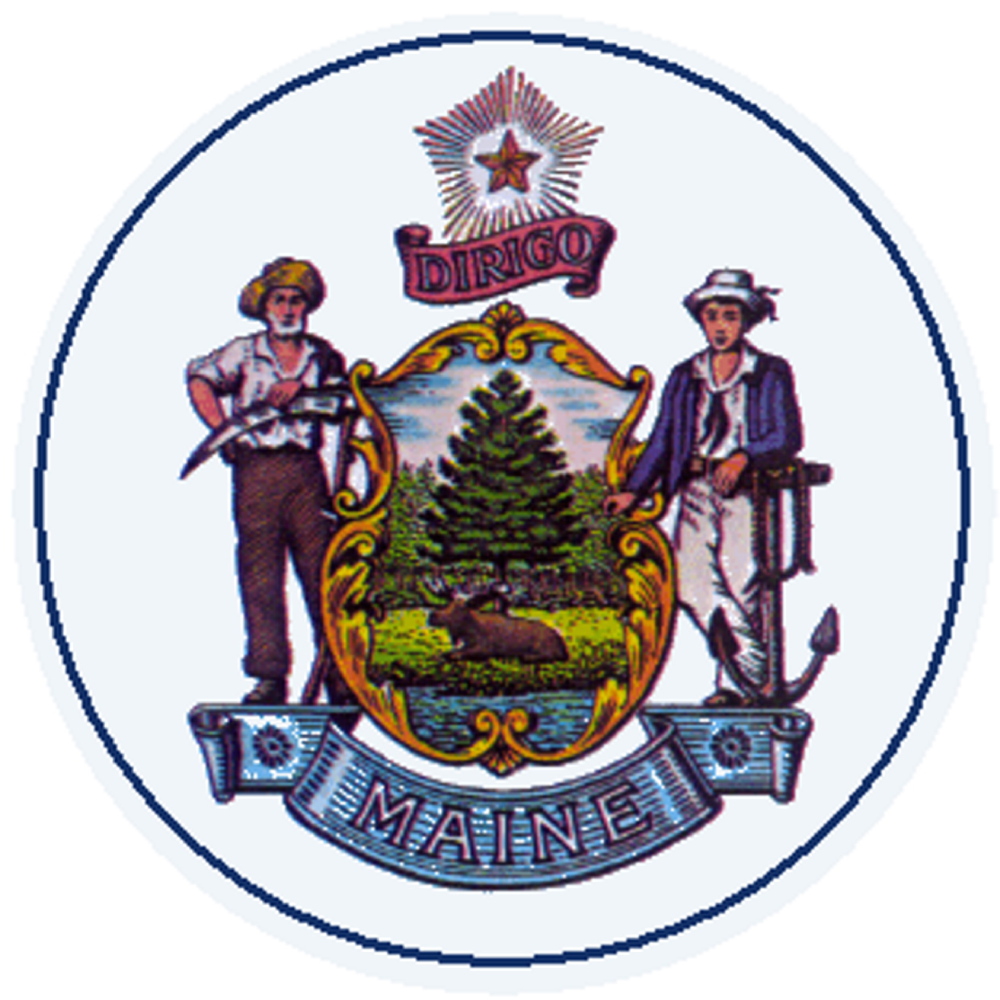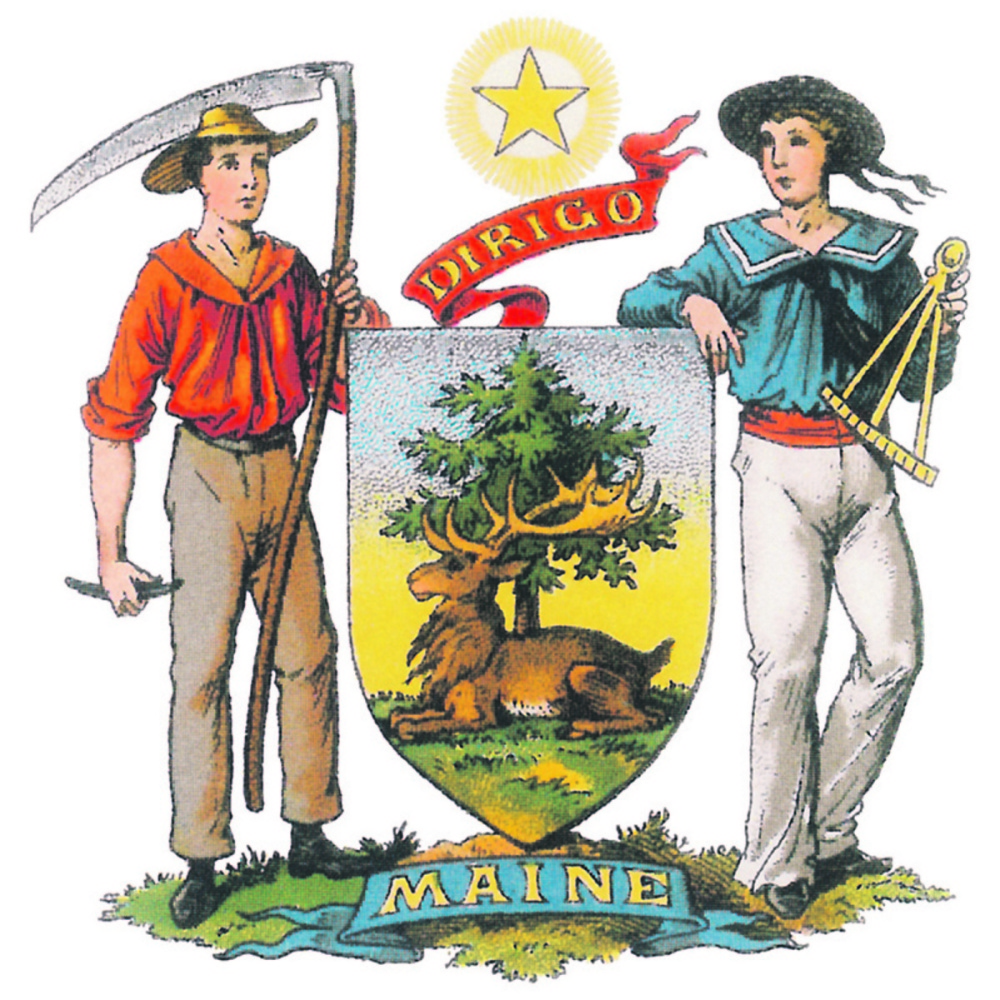The snow has finally melted. The light and warmth of an early sun, the fresh smell of verdant soil and the colorful buds of emerging life bring feelings of hope and optimism.
These natural changes appearing amidst the hand-wringing and angst about Maine’s aging population, our inexorable fiscal woes and widespread state and municipal budget cutting brings to mind the challenge presented by our state’s motto: Dirigo, or “I lead.” And that thought brings to mind the two figures on our state seal.
On the left, rooted like a statue behind the pine tree crest in the center, stands a bearded old farmer/forester, right hand on hip, left holding the blade of an upturned sythe. His face is tanned, with a white beard.
On the right, a white-suited young sailor stands casually, right leg crossed jauntily over the left, right arm leaning on the gold frame of the crest, left draped easily over the top of an anchor. The leathery old farmer stares stoically. The pale-skinned young sailor smiles innocently, conveying a touch of whimsy beneath upraised eyebrows.
Both figures stand firmly on a silver blue banner boldly proclaiming MAINE. Each embodies one of the two deep strains in the Maine character that have cycled through our history. One is the solid, experienced, confident settler, determined to make a life in a beautiful but harsh land. The other is the young daredevil, gazing romantically and optimistically to the sea, dreaming of scrambling up the rigging of a clipper ship that will take him to far-off lands, to realities he cannot know but longs to experience.
Both figures are important. Both stand above the white “Dirigo” emblazoned on a blue banner. Both represent qualities that have served us well in the past. But neither stands alone. And when one becomes dominant, we risk failing to achieve the goal of leadership to which our motto calls us.
As Claudio Magris says of middle European culture, a purely inland orientation can lead to “a reluctance to act, to the defensive posture of those who do not aim to win but to survive.”
As Maine endures the inexorable march of deindustrialization, we cannot afford to shrink into the purely inland quality of our character. Aiming not to win but to survive is tantamount to admitting eventual defeat.
We must, instead, reach into the young, adventurous, optimistic, outward-oriented, seaward longing elements of our character. If we are to honor our motto of leading, we must embrace both the hopes and risks of new directions, new ideas, new enterprises and, yes, new mistakes.
As the great chronicler of fearful voyages Joseph Conrad said, “I can’t tell if a straw ever saved a drowning man, but I know that a mere glance is enough to make despair pause. For in truth we who are creatures of impulse are not creatures of despair.”
Charles Lawton is chief economist for Planning Decisions Inc. He can be contacted at:
clawton@planningdecisions.com
Send questions/comments to the editors.





Success. Please wait for the page to reload. If the page does not reload within 5 seconds, please refresh the page.
Enter your email and password to access comments.
Hi, to comment on stories you must . This profile is in addition to your subscription and website login.
Already have a commenting profile? .
Invalid username/password.
Please check your email to confirm and complete your registration.
Only subscribers are eligible to post comments. Please subscribe or login first for digital access. Here’s why.
Use the form below to reset your password. When you've submitted your account email, we will send an email with a reset code.